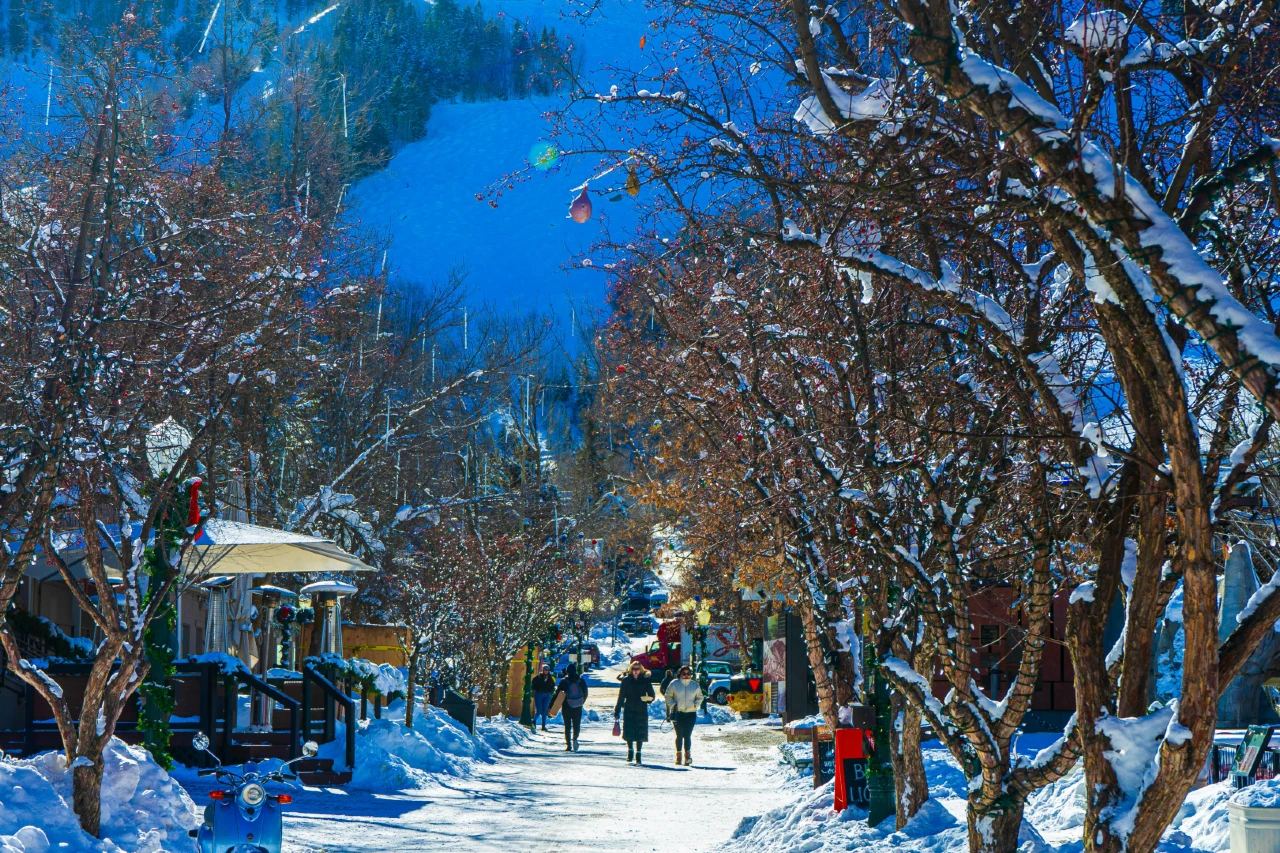Colorado's thriving tourism economy and business-friendly regulations make it one of the most attractive states for short-term rental investments. With millions of visitors flocking to the Rockies annually for skiing, hiking, and outdoor recreation, property owners can capitalize on strong year-round demand through platforms like Airbnb and VRBO.
Colorado's appeal goes beyond its natural beauty. The state ranks among the most landlord-friendly in the nation, offering reasonable regulations and strong property rights. Understanding Airbnb and short-term rental laws in Colorado is crucial before purchasing, as municipalities enforce different licensing requirements and occupancy limits.
Before diving into specific markets, investors should explore short-term rental insurance in Colorado to protect their assets—standard homeowners policies typically exclude coverage for rental activities, making specialized protection essential.
1. Denver: Urban investment hub with year-round demand

Denver combines metropolitan amenities with Rocky Mountain access, creating consistent short-term rental demand from business travelers, tourists, and event attendees. The city's convention center, professional sports venues, and proximity to ski resorts generate bookings throughout the year—not just during peak winter months.
Market performance metrics
Denver's short-term rental market delivers impressive returns. Properties near downtown, RiNo (River North Art District), and the Highlands neighborhoods command premium nightly rates of $150-$300, with luxury condos exceeding $400 during peak periods. The city's occupancy rates typically hover around 65-75% annually, significantly outpacing many traditional rental markets.
The Denver real estate market offers diverse property types—from apartments and condos in high-rise buildings to single-family homes in walkable neighborhoods. Investors should note that Denver requires short-term rental licenses and limits rentals to primary residences in certain zones, though investment properties remain viable in many areas.
Why Denver works
Denver International Airport ranks as the third-busiest in the United States, ensuring steady visitor traffic. The city's growing tech sector brings business travelers, while Red Rocks Amphitheatre, sports events, and craft brewery tourism drive leisure bookings. Winter visitors use Denver as a base for accessing nearby ski resorts, while summer attracts hikers and festival-goers.
Before operating a short-term rental in Denver, review the city's licensing requirements and secure proper Airbnb insurance coverage to protect against property damage, liability claims, and lost rental income.
Explore short-term rental insurance coverage options in Denver:
2. Colorado Springs: Affordable entry point with strong tourism

Colorado Springs presents compelling economics for first-time investors. Property acquisition costs run 30-40% below Denver's prices, while tourism demand from Pikes Peak, Garden of the Gods, and military-related travel maintains healthy occupancy rates.
Investment advantages
Lower entry costs don't mean lower returns. Colorado Springs properties generate nightly rates of $120-$250, with mountain-view homes commanding premium pricing. The city's year-round attractions—from Pikes Peak cog railway to Olympic Training Center tours—sustain consistent bookings outside traditional ski season.
The city's proximity to five military installations creates steady demand from families visiting service members, supplementing tourist traffic. This demographic often books apartments or condos for extended stays, reducing turnover costs and vacancy periods.
Regulatory considerations
Colorado Springs maintains relatively permissive short-term rental regulations compared to resort towns. The city requires business licenses but doesn't cap rental nights or mandate owner occupancy for most properties. However, some HOA regulations in Colorado may restrict short-term rentals, so investors should review association bylaws before purchasing condos or properties in master-planned communities.
3. Breckenridge: Premium ski market with proven returns

Breckenridge epitomizes Colorado's ski resort investment potential. This Summit County town attracts affluent travelers willing to pay premium rates for slope-side convenience, generating some of the state's highest per-night revenues.
Peak season performance
Winter drives Breckenridge's economics. Properties near Peak 9 or downtown command $300-$800 nightly during ski season, with luxury homes exceeding $1,500. While summer occupancy dips compared to winter, hiking, mountain biking, and festival events maintain 50-60% summer occupancy at lower rates.
Breckenridge's proven track record makes it less risky than emerging markets. Established Airbnb and VRBO supply means robust booking data exists for due diligence. Investors can analyze comparable properties' performance before committing capital.
Market challenges
Entry costs present the primary barrier. Condos start around $400,000, while single-family homes often exceed $1 million. Breckenridge also limits short-term rental licenses and requires properties to be located in specific zones, with a competitive application process for new licenses.
Despite higher acquisition costs and regulatory hurdles, Breckenridge's premium pricing and established tourism infrastructure create reliable cash flow for investors who can afford entry. The town's reputation as a world-class ski destination provides downside protection during economic downturns when leisure travel declines in less prestigious markets.
4. Estes Park: Gateway to Rocky Mountain National Park

Estes Park capitalizes on its position as the primary entrance to Rocky Mountain National Park, one of America's most visited national parks with over 4 million annual visitors. This creates concentrated demand in a small geographic area, allowing property owners to capture tourist spending.
Seasonal dynamics
Summer and fall drive Estes Park's short-term rental market. Peak season runs June through October when the park's Trail Ridge Road remains open and weather permits hiking. Properties generate $150-$350 nightly during this window, with premium mountain-view homes commanding higher rates.
Winter occupancy softens but hasn't disappeared. Elk rutting season, northern lights viewing, and snowshoeing maintain moderate winter bookings at reduced rates. Spring shoulder season (April-May) represents the slowest period, requiring investors to budget for seasonal cash flow fluctuations.
Property type considerations
Cabins and homes with mountain views significantly outperform standard apartments or condos in Estes Park. Visitors seek immersive nature experiences, making properties with outdoor spaces, wildlife viewing opportunities, and rustic character most profitable. Investors should factor higher maintenance costs from weather exposure and wildlife interactions into their proforma.
Estes Park requires short-term rental licenses and collects lodging taxes, but regulations remain less restrictive than some ski resort towns. Understanding local short-term rental laws prevents compliance issues that could jeopardize your license.
5. Aspen: Ultra-luxury market for experienced investors

Aspen represents Colorado's pinnacle short-term rental market. This Pitkin County resort town attracts ultra-high-net-worth individuals, celebrities, and luxury travelers willing to pay extraordinary rates for world-class skiing, dining, and cultural events.
Financial realities
Aspen's economics differ dramatically from other Colorado markets. Condos start around $1 million, while desirable homes range from $5-$50 million. However, nightly rates match these valuations—luxury properties command $1,000-$10,000+ per night during peak periods, with some estates exceeding $25,000 nightly.
Despite astronomical acquisition costs, Aspen delivers percentage returns competitive with more affordable markets while providing significant appreciation potential. The town's strict development limitations and international brand recognition create supply constraints that support long-term value.
Regulatory complexity
Aspen implements some of Colorado's most restrictive short-term rental regulations. The town caps rental nights, requires competitive lodging licenses, and enforces strict occupancy limits. Many properties exist in deed-restricted zones prohibiting short-term rentals entirely, making due diligence essential.
Aspen suits experienced investors with significant capital and sophisticated property management resources. First-time investors typically achieve better risk-adjusted returns in more accessible markets like Colorado Springs or Estes Park.
Understanding short-term rental insurance in Colorado
Protecting your investment requires specialized coverage beyond standard homeowners insurance. Platforms like Airbnb and VRBO provide limited host protection programs, but these policies contain significant gaps that expose property owners to substantial liability.
Comprehensive short-term rental insurance addresses risks specific to transient occupancy, including property damage coverage for guest-caused destruction, liability protection for injuries, loss of income coverage when damage prevents bookings, and legal defense costs. Standard homeowners policies explicitly exclude coverage when properties are rented, making specialized insurance essential for protecting your investment.
Colorado's regulatory landscape and the short-term rental loophole
Colorado's short-term rental regulations vary dramatically by municipality. State law provides minimal oversight, leaving individual cities and counties to establish their own licensing, lodging tax, safety inspection, and occupancy requirements.
Denver, Boulder, and many ski resort towns enforce particularly strict regulations requiring careful compliance. The "short-term rental loophole" referencing 30+ day bookings that may bypass certain regulations varies by location—verify specific municipal rules before operating. Some jurisdictions also have HOA regulations that restrict short-term rentals in condos and planned communities.
Colorado real estate market trends
Real estate trends in Colorado show continued appreciation driven by population growth, limited housing supply, and sustained tourism demand. Denver and Colorado Springs rank among the nation's fastest-growing metropolitan areas, while remote work's proliferation has benefited Colorado markets by expanding the customer base for mid-length stays that blend vacation and work.
Read more: Top 5 short-term rental markets in California
Getting started with your Colorado investment
First-time investors should prioritize markets with favorable economics and manageable regulations. Colorado Springs and Estes Park offer the best combination of accessible price points and strong returns, allowing newer investors to build experience without excessive capital requirements.
Start by analyzing comparable properties on Airbnb and VRBO to understand realistic performance expectations. Build conservative financial projections accounting for 60-70% occupancy, operating expenses (maintenance, utilities, supplies, insurance, taxes), and management costs if hiring professionals. Secure appropriate short-term rental insurance and ensure compliance with local regulations before your first booking.
Colorado's combination of natural amenities, business-friendly climate, and sustained tourism growth creates a strong foundation for profitable short-term rental investing when approached strategically.







.png)
.jpg)
.jpg)


.png)